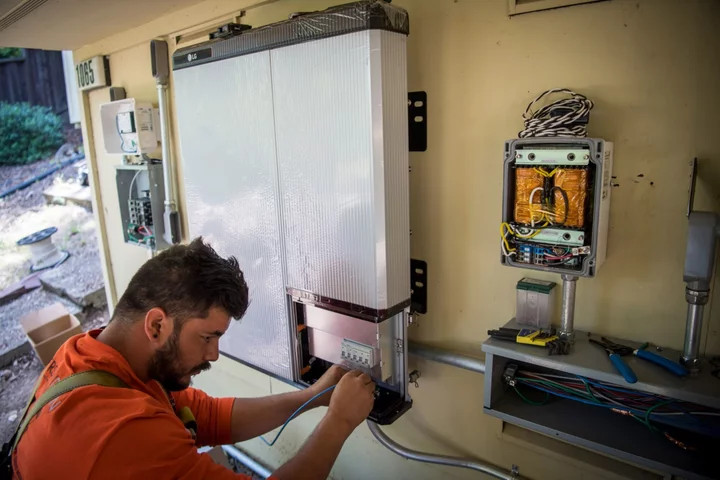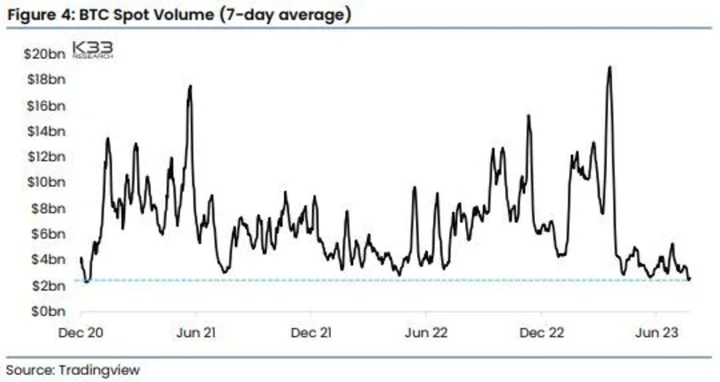Retailers like Hennes & Mauritz AB and Inditex SA are buying only “peanut quantities” of an innovative fiber in a blow to the drive to use more sustainable materials, according to a textile recycling supplier to both fashion brands.
Magnus Håkansson, the interim chief executive officer of Renewcell AB — which produces circulose, a pulp it has trademarked made from recycled cotton and used in creating clothing materials — warned that retailers’ slow demand has been putting a serious strain on its business. Renewcell’s shares have been battered after it abandoned its forecast to break even by year-end amid lower-than-expected sales.
The Sweden-based company opened its first commercial recycling plant last year, with a capacity to produce 60,000 metric tons (66,000 tons) of pulp. However, the volume of orders it expected from the owner of Zara, H&M and other retailers hasn’t materialized. The stock has lost over 80% of its value in the last month and on Tuesday the company reported an operating loss of 190.1 million kronor ($17 million) for first nine months of the year.
If retailers don’t change their buying practices to use new materials, they will struggle to hit their sustainability targets, Håkansson, a former McKinsey consultant, said in a phone interview since joining three weeks ago to help turn the company’s fortunes around.
“It will be a big step back, a big discouragement for other similar investments if things don’t play out well for us,” he said.
Circulose is Renewcell’s main product and can replace some of the traditional wood pulp that’s used in creating various clothing materials. It’s typically blended with other virgin fibers.
Circulose-containing viscose, which Zara and H&M have used, has a silky feel and drapes nicely, making it apt for blouses and dresses. Renewcell’s pulp can also be spun into yarns, woven or knitted into fabrics. A ton of circulose, can potentially be used to produce as much as 3 tons of viscose fibers. That would make around 20,000 t-shirts, the company said.
H&M, which is Renewcell’s biggest shareholder, has pledged that 30% of the materials it uses will come from recycling by 2025. In 2022 it had only hit the 23% mark. Inditex, which sold 621,244 tons of clothing last year, has set a target of 25% new fibers by 2030.
Both retailers and Levi Strauss & Co. have so far have only launched limited edition collections using Renewcell’s pulp.
Håkansson said there are small signs of improvement in demand. Two weeks ago, Inditex said its suppliers will buy 2,000 tons of material made from a blend of circulose and cellulose from wood pulp. The Spanish retailer said it will introduce the material into its collections gradually over the coming seasons. Inditex did not respond to a request for comment before publication.
H&M signed an agreement in 2020 with Renewcell where the brand’s suppliers will produce up to 10,000 tons of fiber using circulose annually, over the next years. The retailer said Wednesday that it has great confidence in Renewcell, which has the “potential to drive change in the industry by enabling the scale-up and commercialization of circular materials.”
Chemical recycling that transforms old textiles into new ones is a nascent area of innovation, with several startups including Danville, Virginia-based Circ and Espoo, Finland-based Infinited Fiber competing with Renewcell. The technology faces significant barriers to scale, including lack of financing and lukewarm uptake from fashion brands. Fabrics made with these new materials are still more expensive than cheaper, virgin ones produced from oil, cotton and wood.









